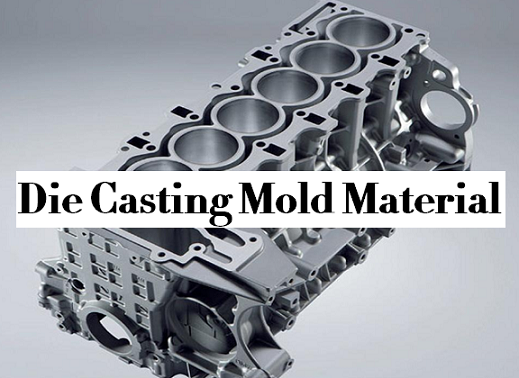The Greatest Guide To Stahl Specialty Company
The Greatest Guide To Stahl Specialty Company
Blog Article
The 5-Second Trick For Stahl Specialty Company
Table of ContentsThe Ultimate Guide To Stahl Specialty CompanyA Biased View of Stahl Specialty CompanyOur Stahl Specialty Company StatementsSee This Report about Stahl Specialty CompanyNot known Facts About Stahl Specialty Company
Chemical Contrast of Cast Light weight aluminum Alloys Silicon advertises castability by minimizing the alloy's melting temperature and improving fluidness during spreading. Additionally, silicon contributes to the alloy's strength and use resistance, making it important in applications where resilience is critical, such as automotive components and engine elements.It also improves the machinability of the alloy, making it easier to process right into finished items. This way, iron adds to the general workability of light weight aluminum alloys. Copper enhances electric conductivity, making it beneficial in electric applications. It additionally improves deterioration resistance and includes in the alloy's general stamina.
Manganese adds to the strength of light weight aluminum alloys and improves workability. It is frequently made use of in functioned light weight aluminum products like sheets, extrusions, and accounts. The visibility of manganese help in the alloy's formability and resistance to cracking throughout fabrication processes. Magnesium is a lightweight aspect that gives toughness and influence resistance to light weight aluminum alloys.
It permits the manufacturing of light-weight parts with exceptional mechanical residential or commercial properties. Zinc improves the castability of light weight aluminum alloys and aids manage the solidification process throughout spreading. It improves the alloy's toughness and solidity. It is often located in applications where detailed forms and great details are necessary, such as ornamental castings and certain vehicle components.
The 5-Second Trick For Stahl Specialty Company
Due to the fact that aluminum-silicon alloys have excellent casting buildings, high gas residential or commercial properties, simple processes, and excellent deterioration resistance, aluminum-silicon alloys are most generally utilized in the die-casting market in your home and abroad. At the exact same time, aluminum-silicon alloys are additionally fairly very early and widely acknowledged alloys developed and utilized in die-casting. After continuous research and enhancement, a lot of the present global mainstream aluminum-silicon alloys have actually been wrapped up and are nothing more than A356, A360, A380, ADC12, B390, and A413.
The main thermal conductivity, tensile stamina, yield strength, and prolongation differ. Select appropriate basic materials according to the performance of the target item created. Among the above alloys, A356 has the greatest thermal conductivity, and A380 and ADC12 have the lowest. The tensile limit is the opposite. A360 has the most effective return stamina and the greatest elongation price.

The smart Trick of Stahl Specialty Company That Nobody is Talking About
In precision spreading, 6063 is fit for applications where intricate geometries and top notch surface area finishes are vital. Instances consist of telecommunication enclosures, where the alloy's exceptional formability enables smooth and cosmetically pleasing styles while preserving architectural honesty. Likewise, in the Illumination Solutions market, precision-cast 6063 components develop classy and effective illumination fixtures that need detailed shapes and excellent thermal performance.
(https://www.openlearning.com/u/franceshoward-sofv17/about/)
It results in a finer surface area coating and better corrosion resistance in A360. The A360 displays remarkable prolongation, making it excellent for complex and thin-walled components. In precision spreading applications, A360 is well-suited for industries such as Consumer Electronics, Telecommunication, and Power Tools. aluminum foundry. Its enhanced fluidity enables intricate, high-precision elements like mobile phone cases and interaction gadget real estates.

In precision casting, light weight aluminum 413 beams in the Customer Electronics and Power Equipment industries. This alloy's premium rust resistance makes it a superb choice for outdoor applications, guaranteeing resilient, sturdy products in the pointed out industries.
What Does Stahl Specialty Company Mean?
When you have decided that the aluminum pass away casting procedure is appropriate for your project, a critical next action is picking the most proper alloy. The light weight aluminum alloy you select will substantially influence both the casting procedure and the homes of the end product. Since of this, you need to make your decision carefully and take an informed strategy.
Determining the most appropriate aluminum alloy for your application will suggest weighing a large more info here range of characteristics. The first classification addresses alloy characteristics that impact the production procedure.
The alloy you choose for die casting straight affects several elements of the spreading process, like exactly how simple the alloy is to collaborate with and if it is prone to casting problems. Warm fracturing, also referred to as solidification splitting, is a common die spreading problem for aluminum alloys that can lead to inner or surface-level rips or cracks.
All About Stahl Specialty Company
Particular light weight aluminum alloys are a lot more prone to hot cracking than others, and your option needs to consider this. aluminum foundry. It can harm both the cast and the die, so you ought to look for alloys with high anti-soldering residential properties.
Corrosion resistance, which is already a notable feature of light weight aluminum, can vary substantially from alloy to alloy and is an important particular to think about relying on the environmental conditions your product will be subjected to. Put on resistance is another home typically looked for in light weight aluminum items and can set apart some alloys.
Report this page